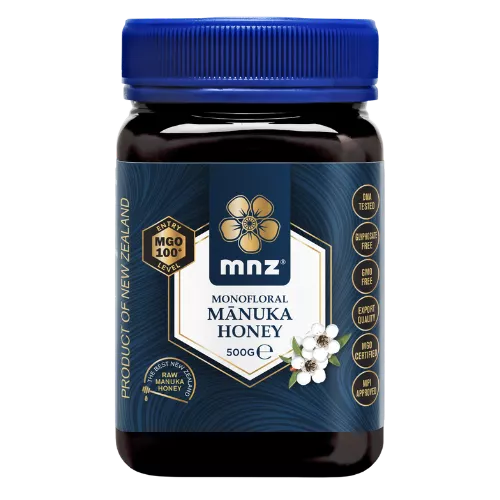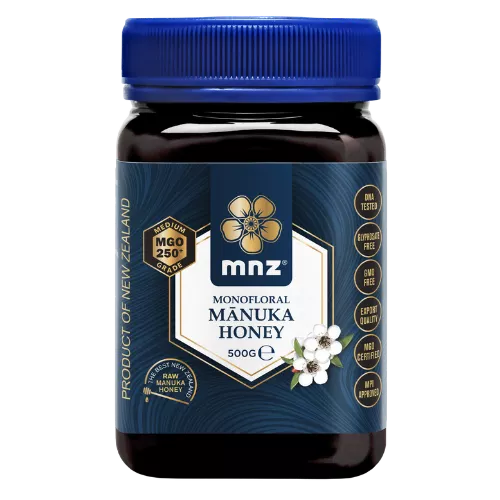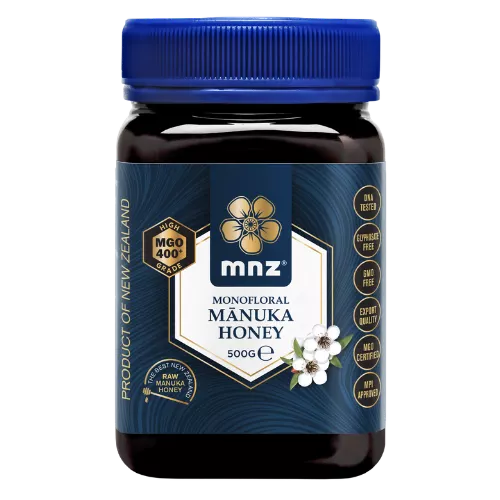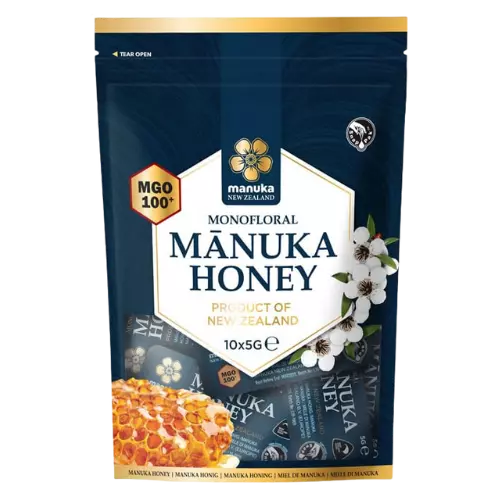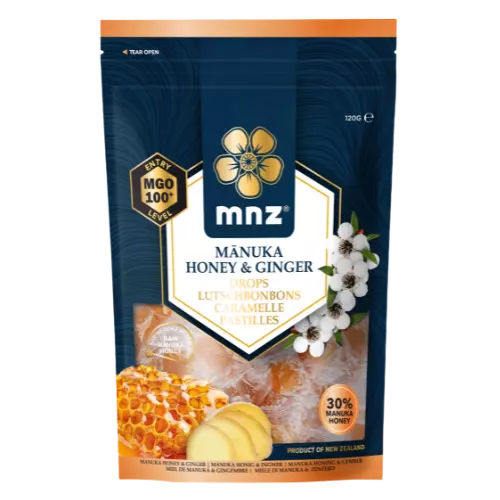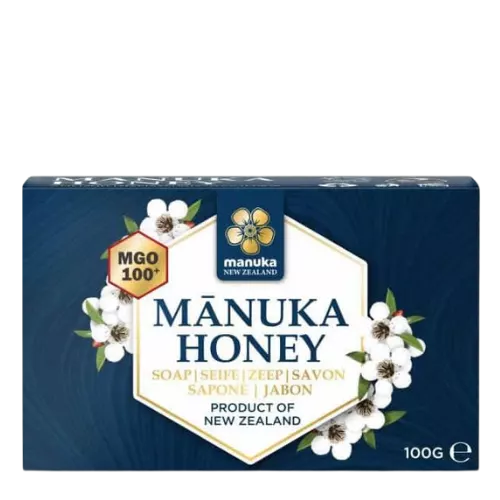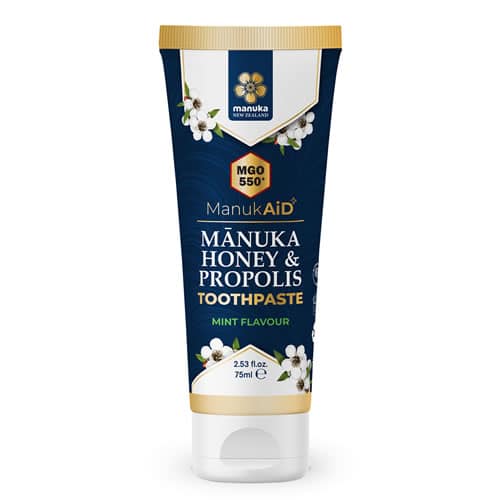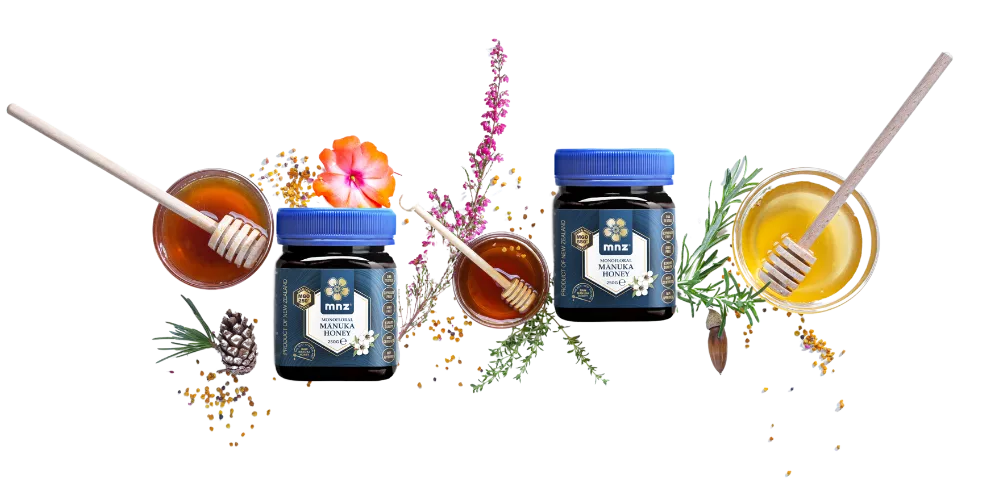What is Manuka honey?
Manuka Honey, derived from the Manuka tree (Leptospermum scoparium), is one of the most extensively researched honeys, renowned for its high-quality and natural bioactivity. This rare honey is produced only during a limited window each year when the Manuka tree blooms, making it highly coveted.
The Manuka tree nectar provides the unique natural compounds that give Manuka Honey its exceptional properties, combining the ancient benefits of honey with the powerful bioactive traits of the New Zealand Manuka tree.
Manuka Honey’s complexity is deeply tied to the unique New Zealand environment, including:
- Pristine natural ecosystems that nurture robust plant life.
- Clean waters and air that support plant health.
- Diverse weather conditions that challenge and strengthen native species like the Manuka tree.
These factors create a honey that embodies the resilience and purity of New Zealand’s natural heritage, making Manuka Honey one of the most prized honeys in the world.
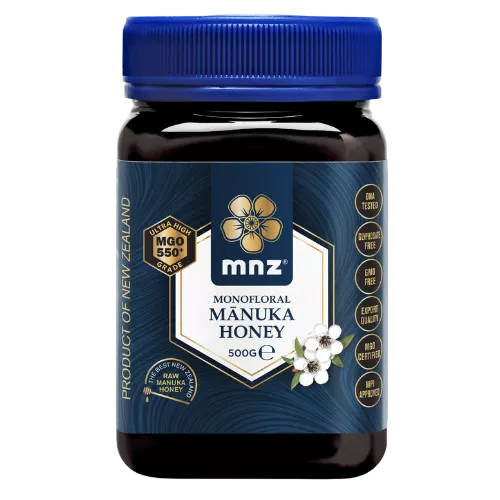
Who Is Manuka Honey Intended For, and Who Can Use It?
New Zealand Manuka Honey is the only 100% natural food in the world scientifically proven to possess high-quality, natural bioactivity. Globally recognized as one of the most exceptional foods, it offers numerous benefits and is suitable for a wide range of consumers, including:
- Individuals Aged 1 and Older: Manuka Honey can be safely consumed by anyone over the age of one, making it a versatile addition to diets.
- Moderate Glycemic Index: With a glycemic index of 54-59, Manuka Honey can be included in diets for people with diabetes when blood sugar levels are carefully managed.
- Suitable for Animals: Manuka Honey’s natural properties make it beneficial and safe for animal use in appropriate situations.
Its unique combination of bioactivity, natural origin, and adaptability makes New Zealand Manuka Honey a truly special product for both humans and animals.
Why Choose Raw Manuka Honey?
Raw Manuka Honey is honey in its purest form, just as nature intended. It is untouched by processing, preserving all of its natural goodness. Here’s what makes raw Manuka Honey unique:
- Pure and Unprocessed: Free from pasteurization, heating, or any artificial processing.
- Nutrient-Rich: Retains vitamins, minerals, and nutrients that contribute to its health benefits.
- Higher Enzyme Content: Contains a higher concentration of natural enzymes that support its bioactivity.
- Amino Acid Profile: Packed with essential amino acids that enhance its nutritional value.
- Distinct Texture and Consistency: Features a thicker, slightly grainy texture that reflects its natural state.
- Incredible Aromas and Flavor: Offers a rich, natural flavor profile and aromatic depth unique to raw honey.
Raw Manuka Honey delivers a truly authentic experience, combining natural health benefits with exceptional taste and texture.
Read more about the difference between raw and creamed honey.


